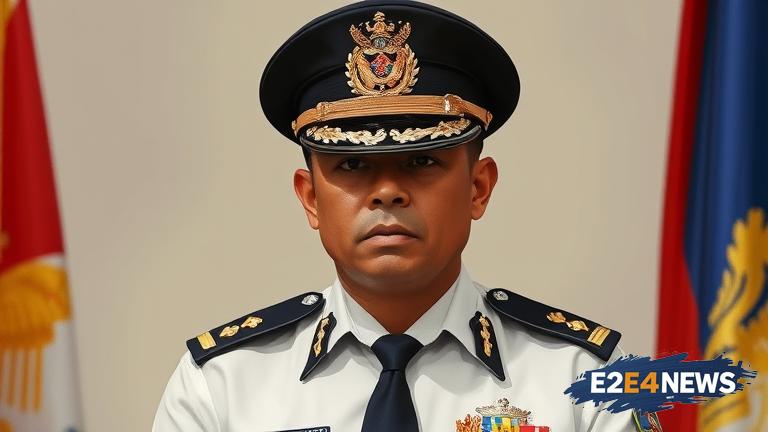The Philippines has appointed a new national police chief, Gen. Nicolas Torre, who will be taking over the position from outgoing chief Gen. Dionardo Carlos. This move comes amidst controversy and concerns over human rights and police brutality in the country. The Philippine National Police has been under scrutiny for its handling of the war on drugs, which has resulted in thousands of deaths and allegations of extrajudicial killings. Gen. Torre, a seasoned police officer with over 30 years of experience, has vowed to continue the campaign against illegal drugs and crime. However, human rights groups have expressed concerns over his appointment, citing his involvement in past controversies. The new police chief has also promised to improve the image of the police force and to address issues of corruption and misconduct within the ranks. Despite these promises, many are skeptical about the ability of the new chief to bring about meaningful change. The Philippine National Police has a long history of human rights abuses and corruption, and many believe that a more fundamental overhaul of the institution is needed. The appointment of Gen. Torre has also been seen as a move by President Ferdinand Marcos Jr. to consolidate his power and control over the police force. The president has been accused of trying to undermine the independence of the police and to use the institution to further his own political interests. The Philippine National Police is one of the largest and most powerful institutions in the country, with over 200,000 personnel and a budget of billions of pesos. The new police chief will be facing numerous challenges, including the need to address the root causes of crime and corruption, and to improve the public’s perception of the police. Gen. Torre has also promised to increase the use of technology and intelligence gathering to combat crime, and to improve the training and equipment of police officers. However, many are concerned that these efforts will be undermined by the ongoing culture of impunity and corruption within the police force. The international community has also expressed concerns over the human rights situation in the Philippines, and has called on the government to take steps to address these issues. The United Nations has condemned the extrajudicial killings and human rights abuses committed by the police, and has called for an independent investigation into these incidents. The European Union has also expressed concerns over the human rights situation in the Philippines, and has threatened to impose sanctions on the country if it does not improve its human rights record. Despite these international pressures, the Philippine government has shown little willingness to reform the police force or to address the root causes of human rights abuses. The appointment of Gen. Torre is seen by many as a missed opportunity to bring about meaningful change and to address the ongoing human rights crisis in the country. The new police chief will be facing a difficult task in trying to balance the need to combat crime and corruption with the need to protect human rights and to improve the public’s perception of the police. However, many are skeptical about his ability to succeed in this task, given the ongoing culture of impunity and corruption within the police force. The Philippine National Police is in need of a fundamental overhaul, and the appointment of a new chief is only the first step in a long and difficult process of reform. The international community will be watching closely to see if the new chief is able to bring about meaningful change and to address the ongoing human rights crisis in the country.
